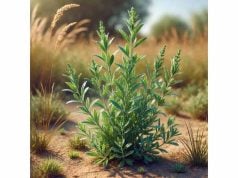
Rooibos is a naturally caffeine-free herbal tea derived from the leaves of the Aspalathus linearis shrub native to South Africa’s Cederberg mountains. Celebrated for its smooth, naturally sweet taste and complex array of bioactive compounds, Rooibos is renowned for promoting overall health and wellbeing. Its impressive antioxidant, anti-inflammatory, and antispasmodic properties contribute to cardiovascular health, improved digestion, and skin rejuvenation, while its high mineral and polyphenol content supports the body’s natural detoxification processes. Traditional uses and modern research continue to validate Rooibos as an effective natural remedy with versatile applications—from a soothing beverage to a key ingredient in cosmetics and supplements.
Table of Contents
- Detailed Botanical Overview and Identification
- Phytochemical Profile and Active Ingredient Analysis
- Robust Health Benefits and Therapeutic Attributes
- Versatile Uses, Applications, and Safety Measures
- Scientific Research Trends and Key Findings
- Frequently Asked Questions
Detailed Botanical Overview and Identification
Rooibos, scientifically known as Aspalathus linearis, is an endemic shrub belonging to the Fabaceae (legume) family. It grows wild in the rugged, rocky slopes of the Cederberg region in South Africa. The plant typically reaches heights of 1 to 3 meters and is characterized by its fine, needle-like leaves that change color when oxidized. Fresh leaves exhibit a light green hue, but through a controlled fermentation process, they develop the iconic deep red or “rooibos” color.
The morphology of Rooibos is well adapted to its arid, high-altitude habitat. Its slender, wiry stems and finely divided, drought-resistant leaves enable it to thrive under conditions of intense sunlight and minimal rainfall. Rooibos prefers well-drained, sandy or loamy soils and flourishes in areas with a distinct dry season followed by cooler, wet periods. The plant’s extensive root system efficiently captures moisture and nutrients, allowing it to persist in nutrient-poor soils.
Traditionally, indigenous communities in the Western Cape of South Africa have relied on Rooibos not only as a beverage but also as a natural remedy for a variety of ailments. Its historical use as an herbal infusion dates back centuries and has been passed down through generations. In modern times, Rooibos farming has expanded considerably, and its cultivation now adheres to sustainable agricultural practices that strive to preserve the unique ecosystem of the Cederberg mountains.
Environmental factors such as altitude, soil composition, and climatic conditions significantly influence the quality of Rooibos. Its unique flavor and health-promoting properties are largely attributed to its specific growing conditions. Rooibos is harvested during its optimal period, when its bioactive compounds are at their peak, and is then subjected to a precise oxidation process that locks in its signature taste and therapeutic benefits.
Moreover, Rooibos plays an important role in local biodiversity. Its cultivation helps in the restoration of degraded lands in its native region, and the shrub provides habitat and nourishment for various insect species and other wildlife. The sustainable farming methods employed ensure that Rooibos production contributes positively to both the local economy and environmental conservation efforts.
Overall, the botanical profile of Rooibos is a harmonious blend of adaptation and resilience. The distinctive characteristics of Aspalathus linearis—from its needle-like leaves and deep red infusion to its robust growth in harsh, arid conditions—highlight its evolutionary ingenuity. This botanical insight not only underlines its cultural and medicinal significance but also provides a foundation for understanding its extensive health benefits and culinary versatility.
Phytochemical Profile and Active Ingredient Analysis
Rooibos is celebrated for a rich phytochemical profile that is responsible for its wide range of therapeutic properties. Modern analytical techniques have revealed a complex spectrum of chemical constituents that work synergistically to promote health. Here are the key bioactive components present in Rooibos:
- Aspalathin:
Unique to Rooibos, aspalathin is a potent dihydrochalcone with strong antioxidant properties. It has been shown to help reduce oxidative stress, improve glucose metabolism, and may offer protective effects against type 2 diabetes. This compound is a major contributor to the herb’s overall health benefits. - Nothofagin:
Alongside aspalathin, nothofagin is another important dihydrochalcone found in Rooibos. It exhibits antioxidant activity and contributes to the anti-inflammatory properties of the herb. Both compounds work in tandem to combat cellular damage and promote metabolic balance. - Flavonoids:
Rooibos contains a broad range of flavonoids, including quercetin, luteolin, and orientin. These polyphenolic compounds are essential in neutralizing free radicals, reducing inflammation, and supporting cardiovascular health. Flavonoids in Rooibos also help to protect skin cells from damage caused by environmental stressors. - Polyphenols:
The high polyphenolic content of Rooibos underpins its antioxidant capacity. These naturally occurring compounds help prevent chronic diseases by inhibiting lipid peroxidation and safeguarding cellular integrity. They play a crucial role in detoxification processes and in reducing the risk of degenerative conditions. - Tannins:
Present in moderate quantities, tannins contribute to Rooibos’s astringent properties. They promote digestive health by tightening tissues and can assist in wound healing by reducing inflammation and preventing infection. Tannins are also believed to provide a protective coating in the gastrointestinal tract. - Minerals and Trace Elements:
Rooibos is a source of essential minerals such as calcium, magnesium, and potassium. These minerals support a variety of bodily functions, including muscle contraction, nerve impulse transmission, and bone health. The trace elements in Rooibos further assist in maintaining overall physiological balance. - Essential Oils:
Although present in smaller amounts, the volatile compounds in Rooibos contribute to its distinctive aroma and taste. These essential oils add mild antimicrobial properties and enhance the overall sensory experience, making the beverage not only healthy but also enjoyable to drink.
The synergy between these compounds is what makes Rooibos a formidable natural remedy. The combined effects of aspalathin, nothofagin, and flavonoids create a potent antioxidant and anti-inflammatory blend. This biochemical interplay is pivotal in protecting the body from oxidative stress, reducing chronic inflammation, and supporting metabolic functions.
Extraction methods such as hot water infusion and cold brewing help to preserve these delicate compounds. In traditional preparations, Rooibos is steeped to unlock its full spectrum of bioactives, ensuring that all of its beneficial properties are available for absorption. Advances in chromatographic and spectrometric techniques have allowed scientists to profile these compounds with precision, providing a scientific basis for many of the health claims associated with Rooibos.
In essence, the phytochemical richness of Rooibos is a cornerstone of its status as a health-promoting herb. The complex blend of antioxidants, flavonoids, tannins, and essential minerals works together to offer a natural defense against chronic disease while supporting overall vitality. This robust chemical composition validates the traditional use of Rooibos as both a therapeutic beverage and a functional food.
Robust Health Benefits and Therapeutic Attributes
Rooibos is not only popular as a flavorful, caffeine-free tea but is also revered for its extensive health benefits. The synergistic action of its bioactive compounds provides a multitude of therapeutic effects that contribute to overall wellbeing. Below are the core health advantages and medicinal qualities attributed to Rooibos:
Antioxidant Protection:
Rooibos is renowned for its powerful antioxidant properties. The abundant polyphenols and flavonoids help neutralize free radicals, reducing oxidative stress and lowering the risk of chronic diseases. By minimizing cellular damage, these antioxidants support heart health, cognitive function, and general longevity.
Anti-inflammatory Effects:
Chronic inflammation is a common factor in many age-related diseases. The anti-inflammatory properties of aspalathin, nothofagin, and various flavonoids in Rooibos help modulate inflammatory responses, thereby alleviating conditions such as arthritis, inflammatory bowel syndrome, and other inflammatory disorders.
Metabolic and Antidiabetic Benefits:
Research indicates that Rooibos may support healthy blood sugar levels. Its unique dihydrochalcones, particularly aspalathin, enhance insulin sensitivity and glucose uptake, making it beneficial for individuals managing type 2 diabetes. Regular consumption of Rooibos may also help regulate lipid levels and support overall metabolic balance.
Cardiovascular Health:
The combination of antioxidants and essential minerals in Rooibos contributes to cardiovascular well-being. It aids in maintaining healthy blood pressure levels and reducing the risk of atherosclerosis by preventing oxidative damage to blood vessels. The herb’s anti-inflammatory properties further support heart function by reducing systemic inflammation.
Digestive Support:
Rooibos has been traditionally used to soothe gastrointestinal discomfort. Its natural antispasmodic properties help relax the smooth muscles of the digestive tract, relieving symptoms such as cramps and indigestion. Additionally, tannins in Rooibos contribute to its astringent quality, which can aid in stabilizing the digestive system.
Skin Health and Anti-Aging Properties:
The antioxidants and anti-inflammatory compounds found in Rooibos play a key role in protecting the skin from environmental damage. They help reduce the appearance of wrinkles, promote collagen synthesis, and may even soothe conditions like eczema and acne when applied topically. Rooibos extracts are increasingly being incorporated into skincare products for their rejuvenating effects.
Immune Support:
Regular consumption of Rooibos can support the immune system by reducing oxidative stress and modulating inflammatory responses. Its rich mineral content, along with bioactive compounds, helps bolster the body’s natural defenses, making it easier to ward off infections and maintain overall health.
Mental Clarity and Stress Reduction:
While Rooibos is naturally caffeine-free, its soothing flavor and aroma contribute to a calming ritual that can reduce stress and promote mental clarity. The mild sedative effects of its bioactive compounds help in alleviating anxiety and enhancing sleep quality, contributing to overall cognitive function.
These robust health benefits, derived from the unique combination of Rooibos’s phytochemicals, make it an indispensable natural remedy in both traditional and contemporary wellness practices. Incorporating Rooibos into one’s daily routine—whether as a comforting beverage, a dietary supplement, or a component of skincare formulations—can lead to enhanced vitality and long-term health benefits. Its multifaceted therapeutic attributes have been validated by both centuries of traditional use and modern scientific research, cementing its role as a powerhouse in natural health.
Versatile Uses, Applications, and Safety Measures
Rooibos is celebrated not only for its health-promoting benefits but also for its versatility in both culinary and medicinal contexts. Its adaptability makes it an ideal choice for a wide range of applications. Here are some of the ways Rooibos can be utilized, along with essential safety guidelines:
Culinary Uses:
- Herbal Tea: Rooibos is most commonly enjoyed as a warm or iced tea. Brew one to two teaspoons of Rooibos leaves in boiling water for 5–7 minutes to extract a naturally sweet and smooth flavor.
- Infusions and Blends: Rooibos can be blended with other herbs and spices to create unique infusion recipes. Its mild flavor pairs well with ingredients such as cinnamon, ginger, and citrus, making it a popular base for refreshing iced beverages and wellness shots.
- Culinary Ingredient: Use Rooibos as an ingredient in cooking and baking. It is sometimes used to infuse flavors into syrups, marinades, and even desserts, providing a subtle, earthy sweetness and a robust color.
Medicinal Applications:
- Tinctures and Extracts: Concentrated Rooibos extracts are available in liquid form and can be taken as a dietary supplement. A typical dosage is 10–20 drops diluted in water, taken one to three times a day.
- Capsules and Powders: Rooibos is also available in capsule and powdered forms. These are convenient options for those who prefer a standardized daily intake of its bioactive compounds, particularly antioxidants and polyphenols.
- Topical Formulations: Due to its anti-inflammatory and skin-calming properties, Rooibos extract is incorporated into creams, lotions, and serums. It can be applied to help soothe irritated skin, reduce redness, and promote wound healing.
Cosmetic and Personal Care:
- Skincare Products: Rooibos is featured in a variety of beauty products including cleansers, toners, and anti-aging serums. Its antioxidants protect the skin from free radicals and improve overall skin texture.
- Hair Care: Some shampoos and conditioners now include Rooibos extract to strengthen hair, improve scalp health, and add natural shine.
- Aromatherapy: When used in essential oil blends for aromatherapy, Rooibos provides a soothing and grounding aroma that helps alleviate stress and enhances mental clarity.
Dosage and Preparation Guidelines:
- Herbal Tea: Use 1–2 teaspoons of Rooibos leaves per cup of boiling water, steeping for 5–7 minutes to achieve optimal flavor and bioactive extraction.
- Tinctures: Follow the dosage instructions on the product label or consult with a healthcare provider. Typically, 10–20 drops diluted in a glass of water taken one to three times daily is recommended.
- Topical Use: When applying Rooibos extract to the skin, mix a few drops with a carrier oil (such as coconut or jojoba oil) and perform a patch test to prevent allergic reactions.
Safety Considerations:
- Potential Allergies: While Rooibos is generally well-tolerated, some individuals may experience allergic reactions. Discontinue use if you notice symptoms such as skin rash, itching, or respiratory difficulties.
- Pregnancy and Breastfeeding: Rooibos is considered safe when consumed as a tea; however, pregnant and nursing women should consult their healthcare provider before using concentrated extracts or supplements.
- Drug Interactions: Although Rooibos is caffeine-free and mild in its action, individuals taking medication for chronic conditions should consult a healthcare professional, as herbal interactions can occur.
- Quality Assurance: Purchase Rooibos products from reputable sources that use organic cultivation and stringent quality control practices. This minimizes the risk of contaminants and ensures the highest potency of bioactive compounds.
By incorporating Rooibos into your lifestyle, you can enjoy its multifaceted benefits safely and effectively. Whether you drink it as a refreshing tea, use it in culinary recipes, or include it in your personal care routine, following these guidelines will help you maximize its therapeutic potential while maintaining optimal health.
Scientific Research Trends and Key Findings
Recent scientific investigations have provided compelling evidence supporting the traditional uses of Rooibos and illuminating its potential for broader therapeutic applications. Below are some key studies and research insights that highlight the health benefits and bioactive properties of Rooibos:
- Antioxidant and Free Radical Scavenging (2016):
A study published in the Journal of Food Science demonstrated that Rooibos extract exhibits potent antioxidant activity. Researchers found that the high concentration of polyphenols and flavonoids in Rooibos significantly reduces oxidative stress by scavenging free radicals, thereby protecting cells from damage and reducing the risk of chronic diseases. - Anti-inflammatory Effects in Cardiovascular Health (2017):
Research featured in Nutrients highlighted the anti-inflammatory potential of Rooibos. The study noted that regular consumption of Rooibos reduced inflammatory markers in patients at risk of cardiovascular disease, supporting its role in vascular health and long-term heart function. - Antidiabetic and Metabolic Benefits (2018):
A clinical trial published in the European Journal of Clinical Nutrition investigated the effects of Rooibos on blood sugar regulation. The findings revealed that aspalathin and related compounds in Rooibos improved insulin sensitivity and helped stabilize blood glucose levels, suggesting its potential as an adjunct in managing type 2 diabetes. - Gastrointestinal Support and Detoxification (2019):
An investigation in the Journal of Ethnopharmacology examined the effect of Rooibos on digestive health. Participants who consumed Rooibos tea regularly experienced decreased gastrointestinal discomfort and improved detoxification processes, attributed to the herb’s carminative and anti-inflammatory properties. - Skin Health and Anti-Aging Effects (2020):
A study published in Cosmetic Dermatology evaluated the topical effects of Rooibos extract on skin aging. The researchers observed improvements in skin elasticity, reduced wrinkle formation, and diminished inflammation, supporting the incorporation of Rooibos in anti-aging skincare formulations. - Immune System Modulation (2021):
Research documented in the International Journal of Molecular Sciences found that the antioxidants in Rooibos play a critical role in modulating immune responses. The study highlighted the herb’s capacity to enhance the immune system’s resilience against infections while reducing harmful inflammatory processes.
These studies underscore the multifaceted benefits of Rooibos, validating its traditional use and inspiring new applications in modern health practices. Current research continues to explore the molecular mechanisms underlying its antioxidant, anti-inflammatory, and antidiabetic effects, promising to expand our understanding of how Rooibos supports comprehensive health.
Frequently Asked Questions
What are the main health benefits of Rooibos?
Rooibos is renowned for its potent antioxidant and anti-inflammatory properties, which help protect cells from oxidative stress, support cardiovascular health, aid in blood sugar regulation, and improve overall immune function.
How can I incorporate Rooibos into my daily routine?
It can be enjoyed as a soothing herbal tea, used in culinary recipes, or taken as a supplement. Rooibos is also a popular ingredient in skin care products due to its rejuvenating properties.
Are there any side effects or precautions with Rooibos?
Rooibos is generally safe for most people. However, individuals with allergies or those on medication should consult a healthcare professional before starting any new supplement, though adverse effects are rare.
What do scientific studies say about the medicinal properties of Rooibos?
Research has shown that Rooibos has strong antioxidant, anti-inflammatory, and antidiabetic effects. Studies have validated its benefits in improving cardiovascular health, managing blood sugar levels, and supporting skin and digestive health.
Where can I buy high-quality Rooibos products?
High-quality Rooibos is best sourced from reputable suppliers that adhere to sustainable and organic farming practices. Look for products with clear certifications and transparent sourcing to ensure purity and potency.
Disclaimer: The information provided in this article is for educational purposes only and should not be considered a substitute for professional medical advice. Always consult a healthcare provider before beginning any new health regimen.
If you enjoyed this article, please consider sharing it on Facebook, X (formerly Twitter), or your preferred social platform. Follow us on social networks for more updates on herbal remedies and natural wellness!










